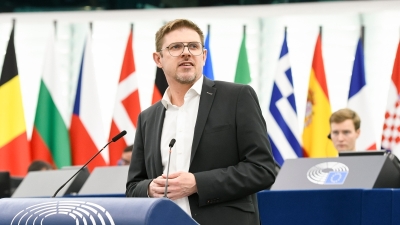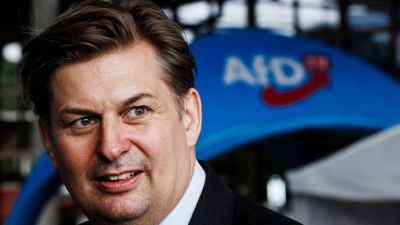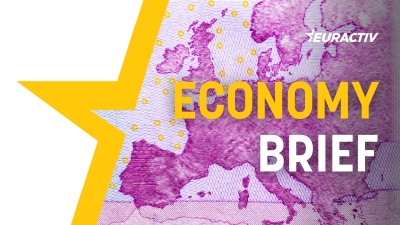UEFA’s on the ball with EURO 2024 climate agenda strategy

UEFA and the German Football Association (DFB) hope to deliver an environmentally conscious EURO 2024, amid concerns surrounding the continuation of major sporting events in the age of climate change.
€32 million have been pledged to achieve all goals laid out in UEFA’s Environmental, Social and Governance (ESG) strategy, co-authored by DFB. It was presented last year and hopes to inspire similar events to adhere to sustainable development.
“We are determined to be part of the solution to measure and reduce the impact of football on the environment and leverage the power of our sport to raise awareness and catalyse action,” UEFA’s director of sustainability Michele Uva remarked during the strategy presentation at last year’s COP 28 conference in Dubai.
43 activities have been designed to achieve 18 major targets across climate action, sustainable infrastructure and circular economy.
Existing fleet of energy-efficient stadiums
Since winning the bid to organise EURO 2024 there were few concerns over the hosting stadiums. Existing ones are already of a high standard, so Germany did not need to build from scratch or reconstruct any of the venues where the football fixtures will take place.
Renewable energy will be used in stadiums and headquarters, while ‘state-of-the-art environmentally friendly’ generators will be employed if the need arises. To ensure more efficiency, the DFB will reduce floodlighting and restrict power consumption in media centres.
Each host stadium will undergo an analysis by the organising committee on an action plan for a potential heatwave. Fan zones will be placed in shades to minimise direct sunlight and heat exposure while cooling breaks will be in effect when temperatures demand it.
Reduction of water consumption has also been promised, alongside foods being offered with minimal, recyclable packaging. All stadiums and public viewing areas plan to have reusable cups.
€7 million dedicated climate fund
One of the tournament-related sustainability initiatives is the recently launched climate fund, which encourages German amateur clubs to undertake emission-reduction projects linked to energy, water, waste management and smart mobility.
€25 will be donated to the fund for each unavoidable tonne of CO2 emissions produced in connection with EURO 2024. Pre-tournament projections estimate some €7 million to be made available for climate protection projects via this fund.
According to a feasibility study by environmental think-tank Oeko Institut, commissioned by the German Environment Ministry, around 80% of the expected carbon footprint for this event will come from transportation.
Measuring and reducing the carbon footprint
The figure stands at 490,000 tonnes of greenhouse gas (GHG) emissions, marking a massive reduction from the official emissions of the 2022 FIFA World Cup in Qatar. The event, advertised by organisers as ‘carbon-neutral’, generated an estimated 3.6 million tonnes of CO2 in reality, with over half of it coming from spectator transportation – highlighting the wider impact of travel.
This is why stakeholders announced climate-friendly public transport, with no added costs for those who hold an EURO 2024 match ticket. A 36-hour travel pass will allow fans to use public transport in and around host cities from 6 am on matchday to 6 pm on the following day.
All group stage fixtures have been arranged within three regional clusters in the north, west and south of the country, with each team playing twice in one cluster. UEFA had previously urged teams and supporters to avoid flying between matches and minimise travel.
In an open letter, an alliance of environmental NGOs called on the German team in particular, to travel sustainably during the tournament and opt for rail as a low-emission mode of transport, thus setting an example as hosts.
Growing ambitions for sports events
In 2020, UEFA announced it would halve its climate emissions by 2030. President Aleksander Čeferin said football has the potential “to dramatically shift mindsets on climate change”.
The European football championship is the third-largest sporting event worldwide, followed by billions of fans across the globe, and UEFA’s ESG strategy reflects that reach.
With plans for other major sporting events to expand (e.g. FIFA announcing the 2030 World Cup would be played across six countries and three continents), EURO 2024 bears the responsibility to show football executives that a compact event can be just as entertaining and successful as a multi-continent one.
But only after the final whistle, will it be possible to conclude if this tournament did enough to justify the continuation of sporting mega-events in the climate age.
[By Xhoi Zajmi I Edited by Brian Maguire | Euractiv’s Advocacy Lab ]
Read more with Euractiv




